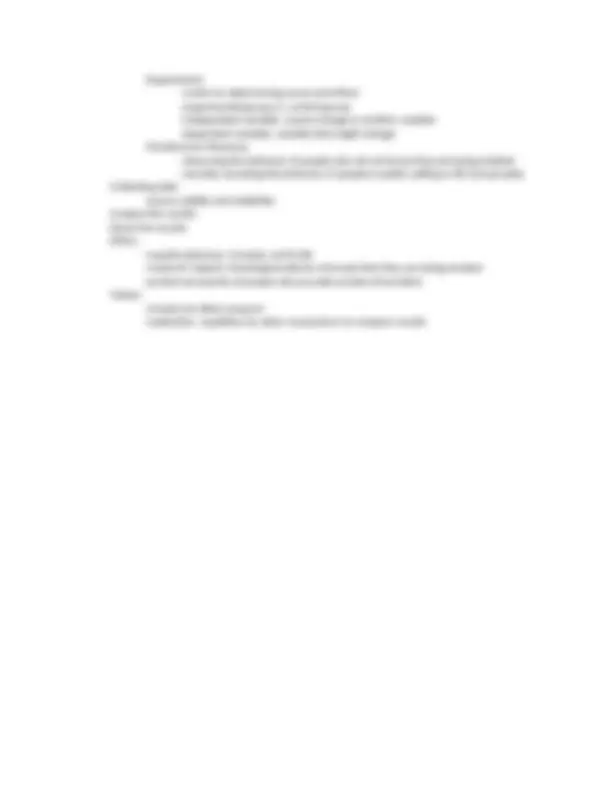



Study with the several resources on Docsity

Earn points by helping other students or get them with a premium plan


Prepare for your exams
Study with the several resources on Docsity

Earn points to download
Earn points by helping other students or get them with a premium plan
Community
Ask the community for help and clear up your study doubts
Discover the best universities in your country according to Docsity users
Free resources
Download our free guides on studying techniques, anxiety management strategies, and thesis advice from Docsity tutors
An overview of the origins and theoretical perspectives of sociology, a social science that studies society and human behavior. The emergence of sociology during the industrial revolution, key figures such as comte, spencer, marx, and durkheim, and their contributions to the field. It also discusses the symbolic interactionist and functional analysis perspectives, as well as the conflict theory. Additionally, the document touches upon research methods in sociology, including survey, participant observation, secondary analysis, experiments, and unobtrusive measures.
Typology: Study notes
1 / 3

This page cannot be seen from the preview
Don't miss anything!


Chapter One Basics -Sociological perspective -stresses the social contexts in which people live -Society: a group of people who share a culture and a territory -Social Location: the corners in life that people occupy because of where they are located in a society Origins -Emerged middle 1800s -Industrial Revolution -ties to land and culture—tradition and social life—were broken -Comte (founder of sociology) -positivism: applying the scientific method to the social world -“Sociology”: the study of society -Spencer -second founder of sociology -thought societies evolve from lower to higher forms -Darwinian (“survival of the fittest”) -social Darwinism -Marx -class conflict -bourgeoisie vs. proletariat -solution is a classless society -Durkheim -got sociology recognized as an academic discipline -goal: to show how social forces affect people’s behavior -suicide -social integration: the degree to which people are tied to their social group -people with weaker social ties are more likely to commit suicide -Weber -capitalism -protestant work ethic: readiness to invest capital in order to make more money Sexism in 1800s -rigid roles -minimal education for both genders -writing was considered masculine Sociology in N. America -took root at the Univ. of Kansas in 1890 -George Mead developed the symbolic interactionist perspective -Jane Addams -Hull-House:open to people who needed refuge -worked to pass 8-hr days and child labor laws -W.E.B. Du Bois -first African American to earn doctorate at Harvard -race relations heighted by personal experiences -C. Wright Mills -power elite: the top leaders of business, politics, and the military -Applied Sociology
-uses sociology to solve problems -ex: National Association for the Advancement of Colored People -an application of sociology in some specific setting Theoretical Perspectives -theory: a general statement about how some parts of the world fit together and how they work -Symbolic Interactionism -analyze how our behaviors depend on the ways we define both ourselves and others -individuals evaluate their own conduct by comparing themselves with others (Horton) -how people use symbols to develop their views of the world and to communicate -symbols define our relationships (self is a changing symbol) -Functional Analysis (/functionalism/structural functionalism) -society is a whole unit; made up of interrelated parts that work together -we need to look at structure and function to understand -Merton -functions: the beneficial consequences of people’s actions, help keep a group in equilibrium -latent functions: unintended consequences that help a system adjust -latent dysfunctions: hurt a system -Conflict Theory -Marx -Feminists: equal rights among men and women -Levels of Analysis -macro: large-scale patterns of society -micro: social interaction (:what people do when they are in another’s presence) Research -Select a topic -Define the problem -Review the literature (already been researched?) -Formulate a hypothesis -operational definitions: precise ways to measure the variables -Choose research method -Survey: asking people a series of questions -select a sample -narrow population to the target group you’re going to study -sample: individuals from target group (random assignment) -ask neutral questions -must allow respondents to express own opinions -types of questions: -closed-ended: followed by a list of possible answers -open-ended: allow people to answer in their own words -establishing rapport(: a feeling of trust) -Participant Observation (Fieldwork) -researcher participates in a research setting while observing what is happening in that setting -Secondary Analysis -analyze data that someone else has already collected -Documents -ex: newspapers, court records